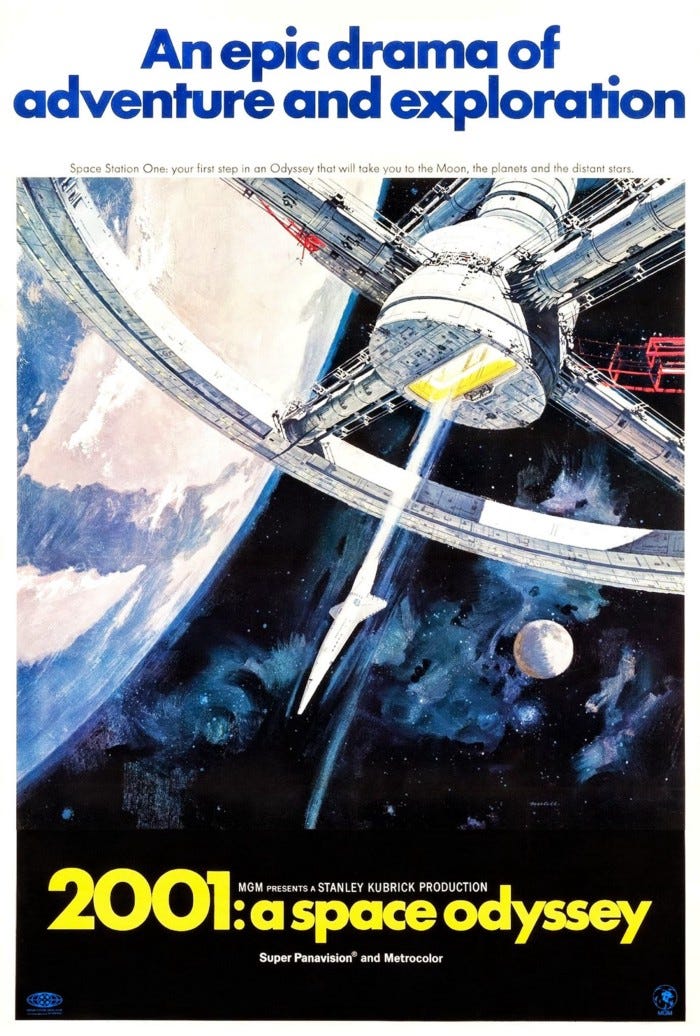I’m Glad I Waited So Long to Watch Some Iconic Films
We always bring ourselves to whatever movies we watch.
by Sarah Callen
We can’t watch a film without bringing our experiences, thoughts, and emotions along for the ride. Every viewing experience is affected by whatever is going on in our lives at the time. I don’t know that we always consider that when we think about really iconic films. It’s almost as if we’ve put a subset of movies to the side and labeled them “always good” or “worth watching no matter what.”
I’m not sure that those labels are always right. While these movies might have done a lot in the film industry, they might not always be impactful for us until we’ve lived a little life.
I took a few film studies classes in college — what could be better than getting a grade for watching movies? Looking back, I wonder if that was the best way for me to be exposed to the classics. Though I loved movies, I’m not sure that I had the life experience or the film knowledge to really appreciate what I was watching.
There are some really iconic films that I didn’t see until last year, and I’m really glad that I waited. Had I watched some of these earlier, they might not have been as meaningful.
Life Experience is Helpful When Tackling Complex Topics
Kramer vs. Kramer is Robert Benton’s Oscar-winning film about the end of a marriage. Dustin Hoffman and Meryl Streep both give phenomenal performances as Ted and Joanna Kramer. I was riveted by this film when I watched it a few months ago.
My parents didn’t get divorced until I was 19, but our family disintegrated long before that. Now, over 10 years later, the sting of that moment and the difficult process my mother went through isn’t as strong. Though I am still affected by their toxic marriage in some ways, I am far enough removed to see my childhood in a wider context.
Had I watched this movie back when I was in college and first getting interested in film, I would have brought all that baggage of their messy divorce with me. I probably would have really hated Joanna for what she did to Ted and her son, Billy. But now that I am an adult, I see some of myself in Joanna. Because I’ve lived a little life, I can see her in all of her gloriously complex humanity.
I honestly don’t think that I was emotionally mature enough a decade ago to appreciate this quiet and thoughtful film. Sometimes, you just need to live a little in order to appreciate a movie’s depth.
A Little Social Awareness Can Go a Long Way
When the racial justice protests erupted around the world during the summer of 2020, I intentionally sought out more films written and directed by Black creators. Do The Right Thing is Spike Lee’s 1989 film that was nominated for two Oscars. This film is powerfully real and invites the viewers to look at the society we are part of, as do all of Spike Lee’s Joints. It’s a difficult, but important, film to watch and one that I highly recommend to everyone, even if you’ve seen it before.
This is a film I’m sure I will only grow to appreciate more as I live more life. Had I seen this even five years ago, it likely wouldn’t have been as impactful as my viewing experience in 2020.
I grew up in the deserts of Arizona and there was one Black kid in my class all through school. Though I wasn’t in an affluent part of town, white people were in the vast majority. I learned about slavery in school, but I didn’t understand the racial divide in this country because I simply wasn’t exposed to it.
Now, I live in Dallas, Texas, which is very racially and ethnically diverse. When I first moved here, it was a bit of a shock to my system. I had to learn, relearn, and unlearn a lot about what I thought about the world.
I love that movies can immerse us in the experience of someone else, and films like Do The Right Thing do exactly that. Spending that hot summer day in the middle of Bed-Stuy with Mookie and Radio Raheem is such a valuable experience. But I had to first understand a bit more about the complex nature of race and the inequities in our country. I still don’t have it all figured out and I’m constantly learning, but I know a lot more than I did when I lived in a lily-white neighborhood. It wasn’t until I moved away and lived some life for myself that I was able to appreciate Spike Lee’s film(s).
Exposure to concepts of racial justice is so important, but sometimes the gravity of these films can be lost on us if we lack social awareness.
Sometimes the Copy-Cats Help You Appreciate the Original
Before the world shut down, a friend and I saw 2001: A Space Odyssey, the classic Stanley Kubrick film that won an Oscar and changed movies as we know them. I was so excited to see this widely renowned film.
I honestly hated every minute. I didn’t get it and I couldn’t understand all the hype around it. I thought it was a bumbling mess of incoherent sounds, images, and plotlines— I couldn’t wait for it to be over.
But I grew to appreciate the film more as my friend and I discussed it after. While I still don’t like it and have zero desire to ever watch it again, I can respect its contribution to cinema as a whole. Because I was able to identify so many series and films that borrowed from 2001, I was able to appreciate it more.
Had it not been for my exposure to other space-related films, I’m not sure that I could have appreciated this Kubrick film as much as I grew to.
I had a similar experience while watching Blade Runner, Ridley Scott’s sci-fi thrill ride nominated for two Oscars. While I enjoyed Blade Runner far more than 2001, what made the experience especially enjoyable was the fact that I understood just how influential it has been to the genre. So many of the post-apocalyptic films and TV shows have borrowed from Blade Runner’s style or plot over the years.
Had I seen either 2001: A Space Odyssey or Blade Runner earlier in my life, I might not have appreciated the impact these two films had on the industry as a whole.
I used to beat myself up a little bit about having so many large gaps in my film knowledge. But now I’m choosing not to see it that way. Instead, I understand that I need to have a level of self, social, and film awareness to appreciate some of these widely respected films.
I’m exposing myself to classic or iconic films little by little as I’m ready for them — there’s no rush.






